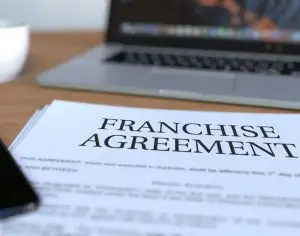The nature of franchising is that franchisors do well when their franchisees do well. One of the inherent duties and obligations of the franchisor is to continue to develop the franchise system so that it remains relevant and profitable. As a result, franchisors dedicate time, effort and resources to assessing market challenges and opportunities and in doing so the focus is mainly on external factors. This is understandable since such external factors pose more of an immediate risk, especially to franchisees.
However, it is also worth considering some of the internal risks because these are the ones that you can do something about in advance of the worst-case scenario!
One franchisee: Multiple individuals
Franchising is infectious (in a good way!) and you often find that when an individual becomes a franchisee, their other half / children or friends may also become involved and wish to join at a later stage. Or, of course, you can have multiple individuals taking on a franchise from the outset.
Regardless of the connection between them (whether they are family, partners or just friends), the biggest risk to the business (both at franchisee and franchisor level) is if the relationship between the individuals breaks down. The reality is that most people think that this will not happen to them and that even if it happens, they will be able to manage it amicably. The truth is many don’t or can’t and we see this more regularly than you might expect. Clearly, when a relationship breaks down it can become a huge distraction for the individuals involved and the business and wider brand can suffer as a result.
Another scenario which can either happen in isolation or in addition to the breakdown of a relationship is if one individual does something which may be a serious reputational risk both to the franchisee and the franchisor (e.g. assault or some other serious offence).
So, what can the franchisor do to protect its business, brand and network?
The answer is two-fold – contractual provisions and process.
1. Contractual Provisions
On a franchisee level, the relevant contractual document is a shareholders’ agreement. The shareholders agreement should include provisions for exit of either individual as well as the trigger events which might force an exit, how the exit will be managed and how the payment (if any) to the exiting individual will be calculated. If this is agreed at the outset, when the relationship is good, then it can save a lot of time, heartache and money when things go bad.
From a franchisor perspective, the franchise agreement should contain provisions requiring multiple individuals to enter into a shareholders’ agreement (and the franchise agreement can even go as far as requiring that the shareholders’ agreement should contain certain provisions e.g. exit and trigger events) as well as the process for dealing with disputes between individuals and the extent of the franchisor’s involvement – the bottom line is that as a franchisor you would not want to be involved and become a “piggy in the middle” but equally having a franchisee where the individuals are unable to resolve their internal dispute can be very damaging to the business and network reputation as a whole.
2. Process
But there is no point having the best contractual protection if you not going to implement it so you also should have a process in place for how the above will be built into your processes. Franchisors will need to implement and ensure that the individuals are aware of the requirement to enter into a shareholders agreement and that the time and cost of it is factored into the process of signing the franchise agreement, paying the initial fee and attending training.
Single franchisee: Death or incapacity
With a single individual franchisee the risks are, of course, different. The biggest risk with an individual franchisee is that they may often be the only person with access to banking or the only signatory and if something happens to that individual then that might put their business at risk of collapse. To prevent this, the solution is still the same – contractual provisions and process.
Most franchisors already have (or should have) provisions within their franchise agreement dealing with what would happen in the event of individual’s incapacity or death. The problem is that at the franchisee level, in practical terms there is often little in place to deal with such events. So, in this case this is very much more about the process and talking to your network to ensure that the message is heard. This should be part of every franchise business continuity plan so that if the worst does happen, the employees and the business can carry on.
As 2022 comes to a close and we look to 2023 and beyond, it is worth taking a little step back and checking that the internal risks have been addressed so that you can proceed into 2023 with confidence!


































